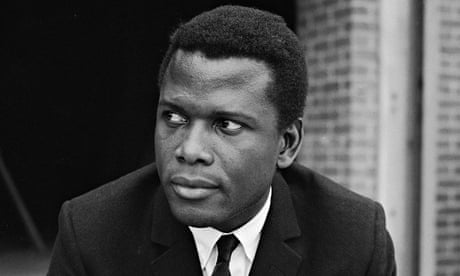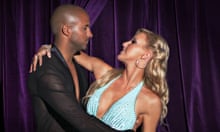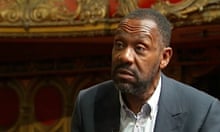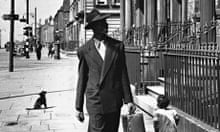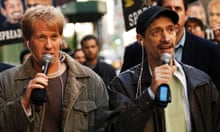Last autumn, a trailer called Where Drama Lives aired on ITV to showcase the network's best dramatic output. It featured not a single black, Asian or minority ethnic (BAME) actor. A discussion began with ITV's head of drama, Steve November, who had commissioned the trailer, and this gathered momentum to become the Act for Change project, which launched last week. I started the campaign with my colleague Daniel Evans, the artistic director of Sheffield Crucible Theatres, and its aim is simple: to examine diversity in UK TV drama and effect a change for the better.
Why is this important? Is it because when I viewed the trailer I was an unemployed actor angry at the prospect of my career gathering dust? Probably, partly. But it was more to do with my past. As a gay, mixed-race kid growing up in Essex I didn't know what diversity meant – I lived it. I wasn't looking for role models with a mid-to-dark caramel skin tone. What I wanted was stories that fed my imagination. I was as interested in emulating Kenneth Williams as I was Irene Cara from Fame; I liked Bill Cosby but I loved Roseanne. And this laissez-faire attitude to role models has stood me in good stead. I auditioned for drama school with a part written by Caryl Churchill specifically for a woman, which I'd seen Sophie Okonedo perform. All the other guys were churning out Jimmy Porter from Look Back In Anger.
But when I became a professional actor I realised this inventiveness wasn't what was wanted. There was an industry awaiting me with open arms to play drug dealer number one in The Bill. My first major audition after Lamda was for a "volatile black council estate kid"; I would turn up to auditions like these and purposefully talk about Keats, Byron or Shaw, just so they knew I was more than what they were reducing me to due to my skin colour. Effectively I had trained for three years to play troubled working-class youth, when Pinter, Orton, Chekhov and Brecht were what drove me.
I knew my journey would be different from that of my white actor peers, but hadn't foreseen just how much. "I see no reason why you couldn't play Horatio," my first agent said. "I see no reason why I couldn't play Hamlet," I replied. Out shopping for a new agent, another said, "Look, dear, don't let this whole race issue become a 'thing' for you. I have seen it drive many a black actor quite stark raving mad." I sat there keen to heed their guidance, but unwilling to accept abject racism in the industry.
Every day I encounter wonderful artists denied the opportunity to work due to something other than their talent. One colleague, a BAME actor, recently lost a TV job because the producers got jitters over casting an "ethnic". A white actor replaced him. Another performer I know was on the verge of signing with a reputable agent when the agent noticed their disability. That was that.
The figures reflect this picture. Almost 2,000 BAME people have left the UK TV industry since 2009, reducing representation from 6.7% in 2009 to 5.4% of the total workforce. Representation of disability is difficult to chart, but seems to be similarly dire. Act for Change aims to challenge the status quo, asking to work with TV channels, to be part of their conversations. TV is a powerful instrument for social cohesion, and has a responsibility to reflect Britain as a whole – the media portrayal of the working classes as benefit scroungers, rioters and chavs has to be addressed.
For far too long TV channels have been left to their own devices, with copious initiatives and diversity courses that haven't borne the fruit they promised. Sidney Poitier, Harry Belafonte, James Earl Jones, Denzel Washington, Marianne Jean Baptiste, Sandra Oh, Peter Dinklage, the late Ruby Dee – none needed a special BAME or disability training course to show the world their talent. They just needed the opportunity.
For this reason, Act for Change would like to examine the most controversial option: quotas. This approach would only backfire if there was not a lot of diverse talent out there – and there is masses. It seems telling that the majority of actors I encounter who are dead set against quotas are white, middle-class men jumping happily from job to job.
There is a new generation of artists waiting in the wings. The young Asian guy from the National Youth Theatre, for instance, who asked to help with our campaign: 16 years old and waiting for school to finish so he can enter a profession many of us now feel ambivalent about.
I know many successful BAME actors desperate to be respected like their white counterparts – so much so that their PR team can be found stood over them in press interviews ready to intervene and wrap it up abruptly the second the conversation turns to race. This knowledge used to anger me, but the longer I spend in the business the more I understand the reticence of these actors. I look forward to the day when we really are a big melting pot and nobody cares about anyone else's differences. But first, the world has to change.
